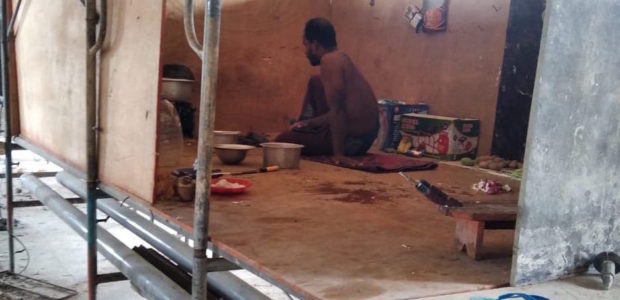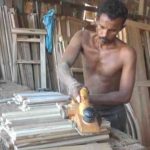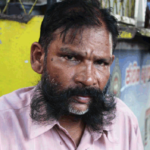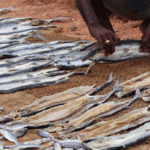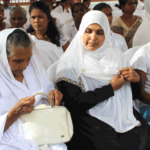Away from home during the curfew
Lockdown Means We Can’t Go Home
Stories from people who can’t go home because of the COVID-19 lockdown
“Stay home! Stay safe”. This is what everyone says these days since Sri Lankans began to isolate themselves in early March due to the COVID-19 outbreak.
It was announced on a Thursday that all schools will be closed from 12th March but it should have been announced on Friday. Students were lamenting that they could not say goodbye to their friends. On the other hand, businessmen were lamenting that they would lose millions if they do not attend to their daily routine.
The Covid-19 virus has created a dangerous situation compelling governments to take immediate action to contain its spread. European countries enforced a lockdown and threatened people with fines if they went about unnecessarily. Countries like India and Sri Lanka imposed a curfew and took action to punish those who violated it.
Some are not able to go home, because they were elsewhere when the curfew was announced. There are many who were compelled to stay in places far away from home. Here are some of those people and their stories:
“When I think of my son, I even eat. He works in Kuwait and I don’t know the situation there … He is alone. No one could guarantee the safety of anybody. Expats have been asked not to return to the country. It is scary to think what will happen next” said Kanthiya Maheswary of Hali-Ela.
Although her son talks to her over the phone intermittently, she feels his absence during these troubled times. If the family was together, she feels, there will be some kind solace.
“My son calls whenever he can. His workplace is closed and he stays with friends. He cannot come home until his employment contract is over. If he wants to come, he must spend his own money. He says that once the situation is normal, he will go back to work” she says.
——–
Apart from this, Ando Dinesh, a karate teacher, went abroad for a temporary event and is now unable to return to the country. “I usually go abroad for karate events. This time I went to Canada to participate in such an event on the invitation of Canadian Karate Association. I arrived in Canada on the 7th of March. I am unable to return now. I am worried about not being with my family at this time. The visa period is not yet over but I had no arrangements for a long stay here. I now stay at the home of a karate coach here. But I must return to the country soon. I have informed to the Ministry of Foreign Affairs. They requested that I stay where I am until the situation becomes better. They promised, action will be taken as soon as the situation is stable”, Dinesh said.
When talking to him by phone, he said that he was in a state of helplessness. He also said a relative was helping his family in Sri Lanka. “My homeland is Sri Lanka. The family is there. If something happens, oh my God …. I must be there,” he says. He seems to be mentally affected. The number of people infected by the virus are increasing at an alarming rate. Unfortunately, 9 in Sri Lanka have died. In this case, the entire the world is in the state of lockdown. The Sri Lankan government has advised citizens who are abroad not to return to the country and until the situation is normalized.
On March 26, the Ministry of External Affairs in association with Information and Communication Technology Agency of Sri Lanka opened a database and requested stranded Sri Lankans to register. So far, about 17,000 people have registered, including those who made temporary visits overseas.
Additionally, many are confined within district limits. Particularly, the Colombo Metropolitan Area which is the most vulnerable have many people who has come for work and other purposes and are now unable to return to their home towns. They have been asked to ‘stay at home’. This has brought them lots of difficulties.
Prasad is a native of Badulla who has been working at a shop in Colombo for the last three years. “I never dreamed I would be so isolated. It got late to close the shop on the day curfew was declared. I did not have money in hand to go home. After 3 days of curfew, I thought I could get an advance from the shop owner to get back home. But I am stuck now. My uncle passed away and I couldn’t attend his funeral. No one contacted me on that day. I was left alone. It was very scary” he said.
“During normal working days we were served with cooked food. But now we need to cook and eat ourselves. When our shop owner closed the shop, he gave me the kitchen keys. That is why we can cook and eat. From time to time we talk with those at home” K. Prasad continued.
Similarly, Kalimuthu Dineskumar, who has been working in a restaurant in Colombo 14 for the past 9 years, has been locked up in a room with five others. His native place is Dikoya in the Tharawala area. He told us of his plight. “I had money but could not go out. Rice, lentils and soybeans are in limited stock. Our employer sends some items from time to time. Understanding the situation, we now skip breakfast and eat only twice a day. We are waking up very late in the morning to avoid breakfast. We cook lunch and eat and save some of it for dinner”. According to him, 200 families from three estates in his area have now been isolated on suspicion that the virus may have infected those who attended a temple service at Tharawala. This means the option of going home is impossible right now.
Meanwhile, some who came from the Eastern Province to Colombo and Dehiwala for construction work are unable to go home.
“We have no private rooms to stay here. We have small tents in the structure. We cooked our meals while at work. We do the same even now. But commodities are scarce. We bought a little flour. So we live on roti for two meals and rice for one meal a day,” he says.
There are six men here, all of them married. They used to send their earnings home to their families. Now there is no work and no income. They explained, “Now the building work has been suspended and we engage in small work like cleaning here. There is no work for 6 of us here. Only one person has work per day. So, all 6 of us are working alternately. One person’s wage is Rs. 1600 a day, we are managing with that money for all of our meals,” the say.
These people can’t go back to their places right now. Colombo is in a state of indefinite curfew. No district border crossing is allowed. In this case, employers and the surrounding community should help them find food. It is a social obligation. We must care for one another while maintaining the social distance ensuring that no one else gets infected.
